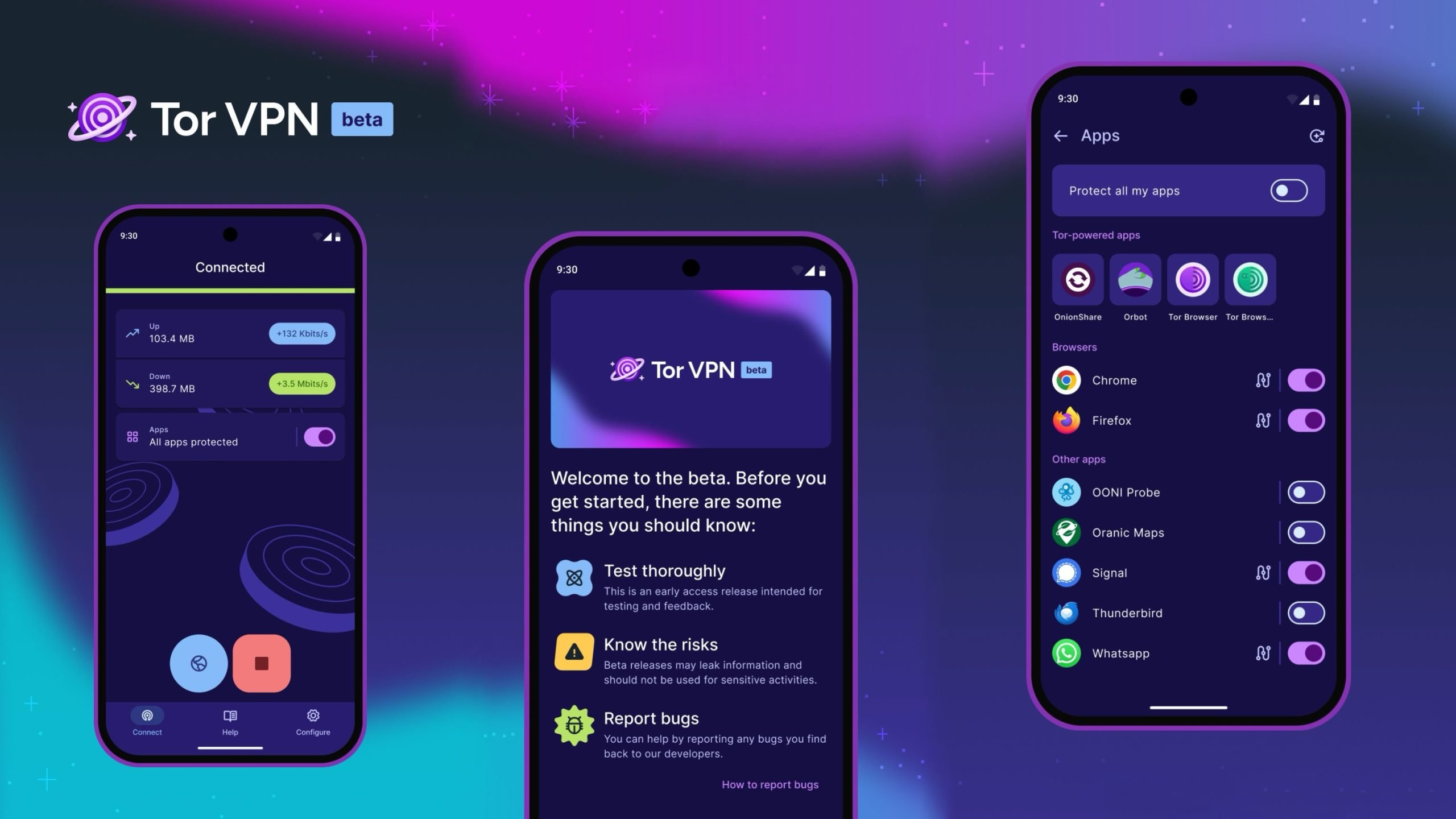The Tor Project has introduced a new VPN app for Android, giving users the option to route internet traffic through the Tor network, but the release comes with strong cautionary notes.
The Tor VPN Beta is now listed on the Google Play Store.
It represents the organization’s first mobile VPN and is clearly marked as experimental.
According to the Tor Project, the app should not be relied on for sensitive activities, as it may still leak information that could identify the user.
Its purpose, for now, is to invite public testing and feedback rather than provide robust privacy protections.
Since then, over 600 commits have been made. The software is open source and licensed under the BSD 3-Clause license, reflecting Tor’s ongoing commitment to transparency and user freedom.
One of the app’s most notable features is per-app routing. Users can choose which Android apps send their traffic through Tor, and each app is assigned its own Tor circuit and exit IP. This setup is intended to prevent traffic correlation between apps.
The VPN includes several privacy tools:
IP and location masking: Apps connect through a Tor exit node rather than the device’s real IP.
Selective app routing: Only selected apps are routed through the network, creating isolated circuits.
Censorship avoidance: Users may be able to access content that is blocked in certain regions or networks.
Support for onion services: Like the Tor Browser, the app can connect to .onion domains for anonymous communication.
Despite these features, the Tor Project has made it clear that this beta release is not ready for high-risk use.
Android itself can leak device-level information, such as hardware identifiers, which no VPN can fully conceal. The app is expected to have bugs, crashes, and incomplete functionality.
At this stage, Tor VPN Beta is best suited for developers and privacy-conscious users who understand the risks and are willing to help improve the software by reporting problems.
Since its founding in the early 2000s, the Tor Project has focused on building tools that protect online privacy and freedom.
Supported by grants and donations, the nonprofit is most recognized for the Tor Browser, which uses a distributed network of volunteer-run relays to anonymize web traffic.










